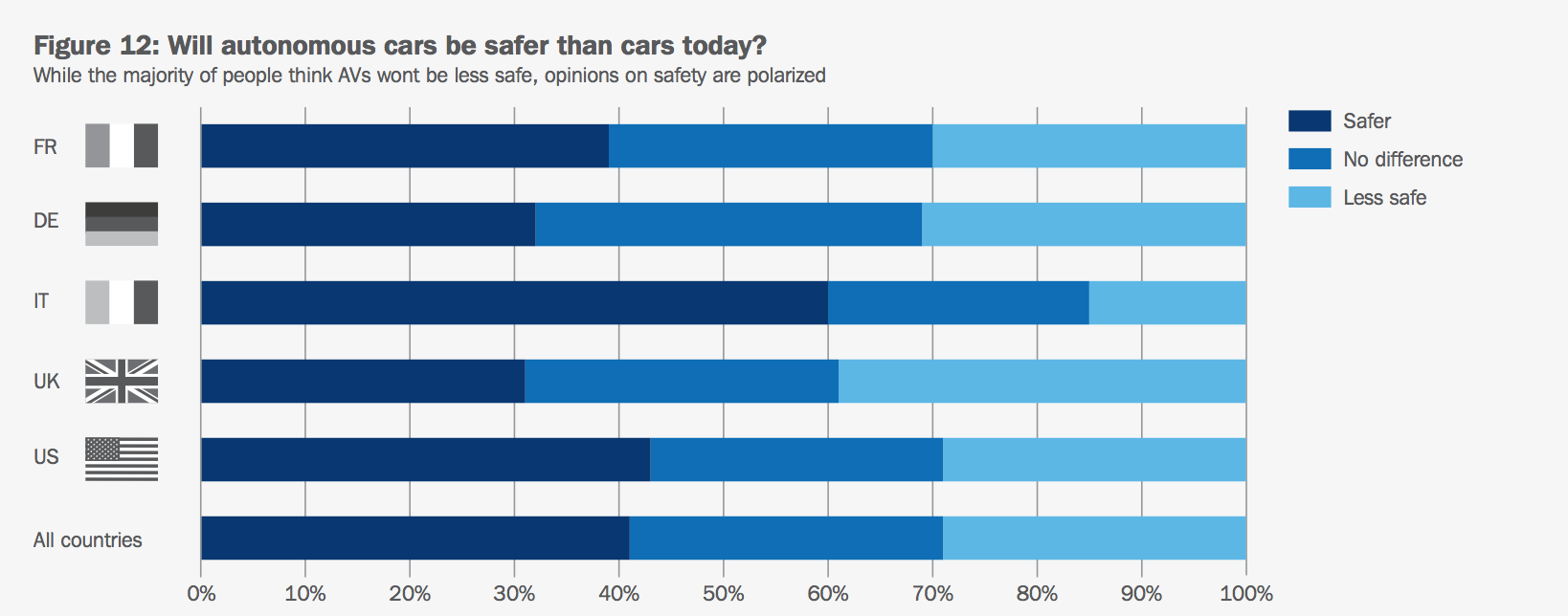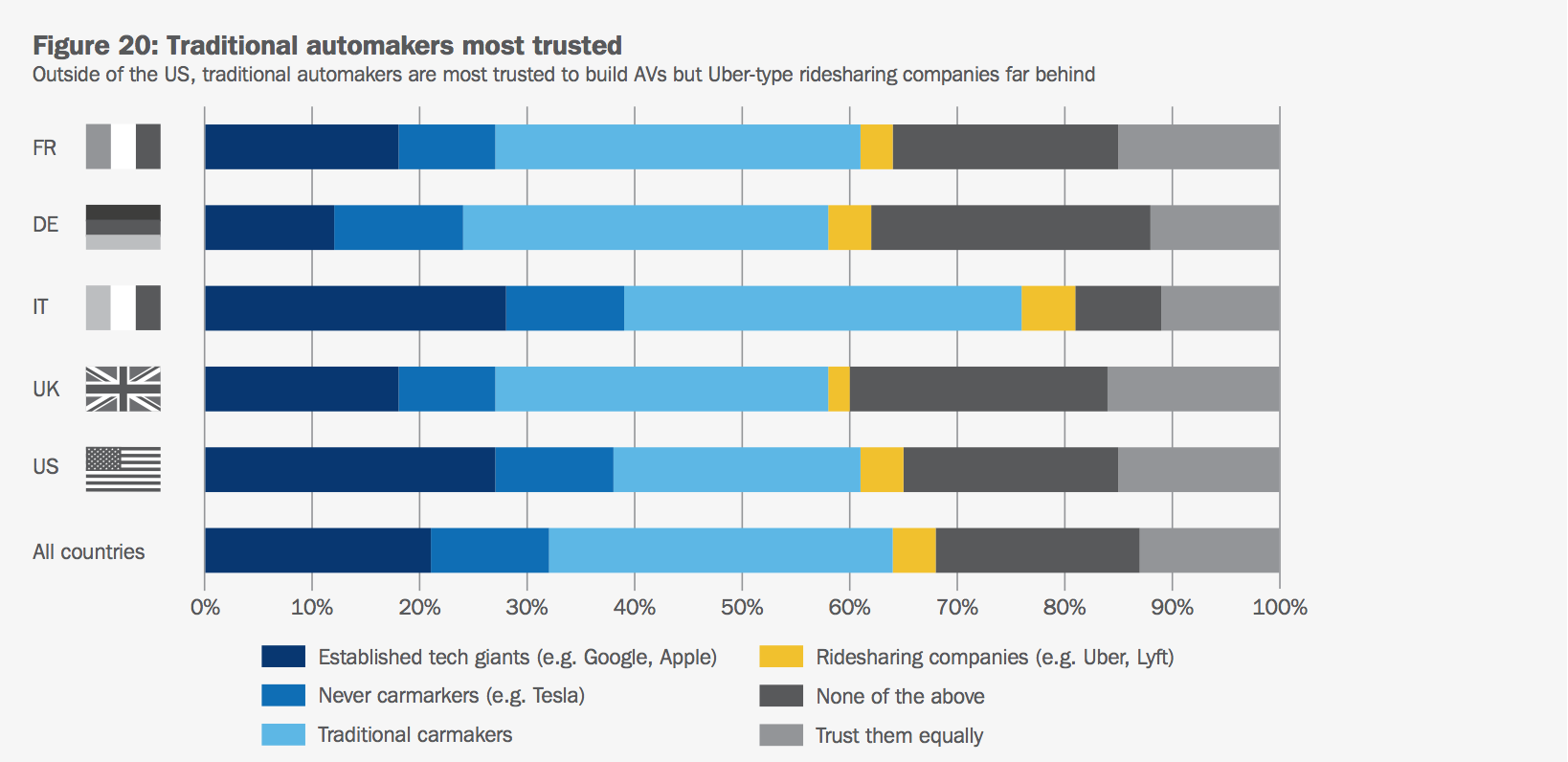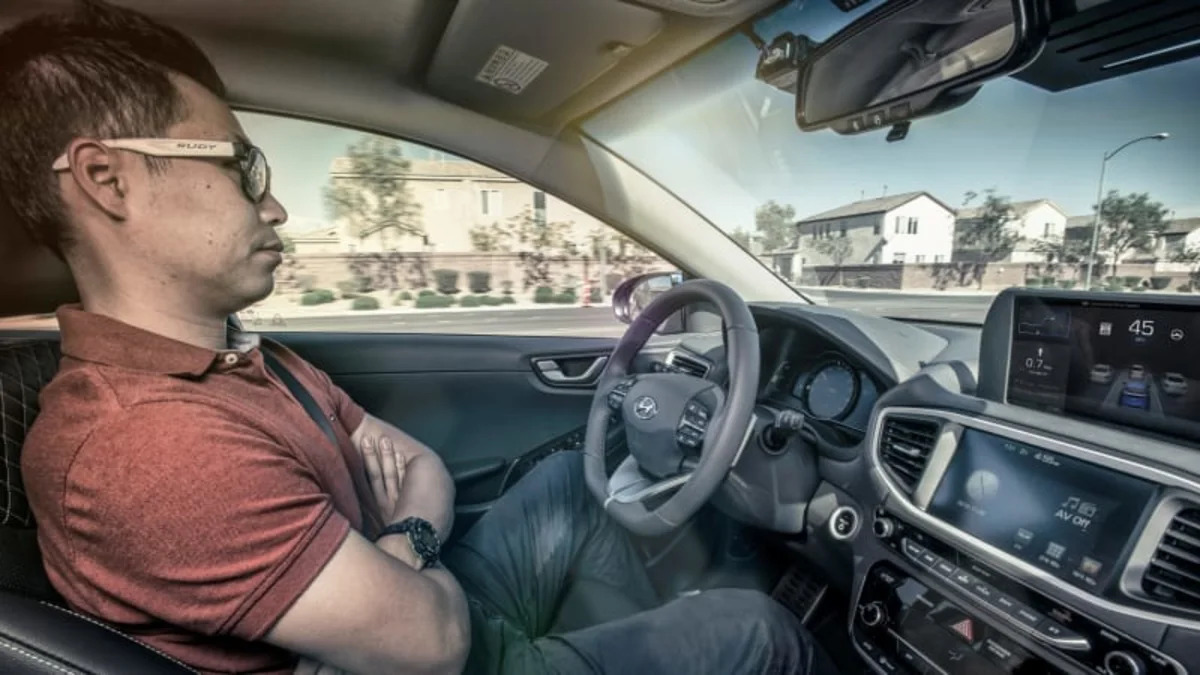In a study surveying drivers in the US, UK, Germany, France, and Italy, transportation data company INRIX finds that attitudes about autonomous vehicles (AVs) differ quite a bit depending on what side of the Atlantic one lives on, as well as by age. The survey gathers responses about safety, privacy, and trust and confidence in the connected and autonomous vehicle market, as well as their likelihood to purchase a self-driving car.
When it comes to safety, 71 percent of US drivers expect autonomous cars, compared to 85 percent of Italians, to be as safe or safer than today's vehicles. In the US, 73 percent of Baby Boomers disagree, thinking AVs won't be as safe. Boomers do, however, believe AVs will improve access for the elderly, though 53 percent still say they probably wouldn't buy one. Only 25 percent of all respondents said they'd be likely to buy an autonomous vehicle, with drivers in the US and Italy, as well as those already owning a connected car, being more receptive to the idea.
And since we're talking about it, INRIX defines connected vehicle as "cars communicate with each other and the world around them primarily using mobile internet connections." While 76 percent of those surveyed say they have heard the term, 40 percent don't know what a connected car is.

In the US, drivers are more likely to trust big technology companies (27 percent) such as Apple and Google to build autonomous vehicles than automakers (23 percent). They trust ridesharing companies with this duty much less, at 4 percent. They are also more likely to trust tech giants with their data privacy, though nearly half of the Baby Boomers surveyed trust nobody.
Outside of the US, automakers are more trusted to build AVs. Germans are 2.8 times as likely to trust automakers than tech giants, but their view of rideshare companies is as dim as Americans'.

INRIX uses the data from the survey to draw some conclusions about how to improve attitudes about autonomous and connected vehicles. One is to get drivers used to connected cars by offering free trials of connected services, or bundling them with navigation or entertainment packages. Manufacturers should focus on solving the most widespread driver "pains," for instance by offering real-time parking availability. They also need to do more to explain the benefits of connected cars, continue to address data privacy, and build a trusted reputation as a brand.
Regardless of what they actually think about autonomous vehicles, 62 percent of respondents believe they'll be widely available within the next 10 years. Now it's up to manufacturers to build trust, and make sure that connected and autonomous cars actually provide solutions to drivers' problems.
Related Video:
When it comes to safety, 71 percent of US drivers expect autonomous cars, compared to 85 percent of Italians, to be as safe or safer than today's vehicles. In the US, 73 percent of Baby Boomers disagree, thinking AVs won't be as safe. Boomers do, however, believe AVs will improve access for the elderly, though 53 percent still say they probably wouldn't buy one. Only 25 percent of all respondents said they'd be likely to buy an autonomous vehicle, with drivers in the US and Italy, as well as those already owning a connected car, being more receptive to the idea.
And since we're talking about it, INRIX defines connected vehicle as "cars communicate with each other and the world around them primarily using mobile internet connections." While 76 percent of those surveyed say they have heard the term, 40 percent don't know what a connected car is.

In the US, drivers are more likely to trust big technology companies (27 percent) such as Apple and Google to build autonomous vehicles than automakers (23 percent). They trust ridesharing companies with this duty much less, at 4 percent. They are also more likely to trust tech giants with their data privacy, though nearly half of the Baby Boomers surveyed trust nobody.
Outside of the US, automakers are more trusted to build AVs. Germans are 2.8 times as likely to trust automakers than tech giants, but their view of rideshare companies is as dim as Americans'.

INRIX uses the data from the survey to draw some conclusions about how to improve attitudes about autonomous and connected vehicles. One is to get drivers used to connected cars by offering free trials of connected services, or bundling them with navigation or entertainment packages. Manufacturers should focus on solving the most widespread driver "pains," for instance by offering real-time parking availability. They also need to do more to explain the benefits of connected cars, continue to address data privacy, and build a trusted reputation as a brand.
Regardless of what they actually think about autonomous vehicles, 62 percent of respondents believe they'll be widely available within the next 10 years. Now it's up to manufacturers to build trust, and make sure that connected and autonomous cars actually provide solutions to drivers' problems.
Related Video:


Sign in to post
Please sign in to leave a comment.
Continue